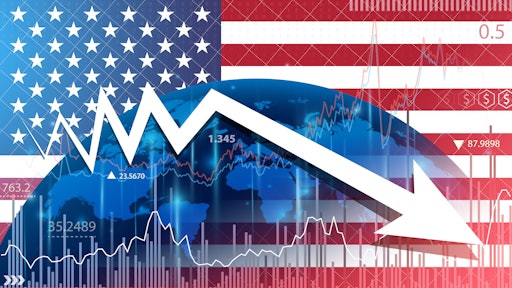
leestat AdobeStock_503946321
Recent data reveals a 1.3% quarter-over-quarter decline in business optimism, following a sharp 12.9% drop seen in the prior quarter, according to Dun & Bradstreet’s quarterly 2025 Global Business Optimism Insights report.
“In the face of macroeconomic uncertainty, rising capital costs, and a weakening growth forecast, businesses remain apprehensive about the global economic landscape and cautious about investment,” says Neeraj Sahai, president of Dun & Bradstreet International. “The reshaping of trade relationships and tariff uncertainty contributed to over 90% of the economies surveyed reporting a decline in their financial confidence index, in both emerging and advanced economies. Cost expectations remain elevated, especially in the economies most exposed to tariff hikes.”
Key takeaways:
- While financial confidence dropped 8.6% amid challenging business conditions, optimism levels for supply chain continuity were flat. Further, investment optimism declined reflecting continued uncertainty over the pace of rate cuts in 2025.
- Export-driven sectors such as automotives, electricals, and metals saw sharp declines in business optimism, particularly in the United States, Mexico, South Korea, and Japan, where rising tariffs and shifting trade policies have resulted in cost pressures and demand volatility. Financial risk perceptions remain elevated as businesses continue to deal with high borrowing costs amid tightening liquidity conditions and persistent inflation expectations. Globally, the perception of financial risk on business balance sheets has increased, with optimism levels falling 6% quarter-over-quarter.
- Sentiment across emerging economies held steady, with the decline driven by advanced economies where optimism fell 1.7%. However, a resurgence of inflation is viewed as being disruptive, with 86% reporting it would significantly affect operations. Tighter domestic monetary policy is seen as a significant risk by businesses globally, with 70% considering it highly probable and 83% expecting a material impact.
- The overall stagnant optimism is attributable to the persistent supply chain disruptions, labor shortages, the ongoing challenges of adjusting to evolving global trade dynamics, and heightened tensions surrounding U.S. tariffs. Globally, there is a noticeable drop in optimism about delivery lead time, which declined 7.8% quarter-over-quarter with the fall slightly larger at 9.5% for advanced economies.
- The Global Business Financial Confidence Index declined 8.6%, reflecting a business landscape clouded by macroeconomic uncertainty, the ongoing high cost of capital, a softening growth outlook, and the reshaping of trade relationships.
- 69% of businesses reported optimism for capital expenditures, a fall from 77% in last quarter and 84% in Q4 2024. This drop off in confidence is largest for the metals and mining manufacturing sectors, which are the most exposed to the U.S. aluminum and steel tariffs.
- The Global Business ESG Index declined 3.3%, marking the first drop after three consecutive quarters of growth, a result of declining engagement in social and governance initiatives. While 77% view climate change and environmental risks as significant, only 58% believe they are highly probable.
“The prospect of a resurgence of inflation given higher import tariffs has tempered expectations for the scale of interest rate cuts, which will likely restrict business investment and can have broader effects on upcoming economic cycles,” says Arun Singh, global chief economist at Dun & Bradstreet. “The challenges global businesses are facing continue to hinder recoveries and weaken financial resilience, particularly within large businesses – which reported a greater decline in financial confidence. While economic conditions are expected to improve slightly, the impact on businesses will be delayed, increasing the strain on their balance sheets this year.”









